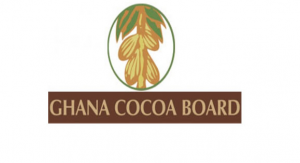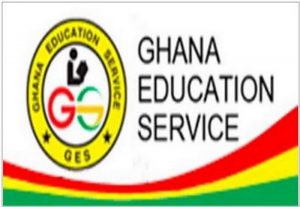Former Special Prosecutor Martin Amidu has criticized the Finance Minister Ken Ofori Ata over the botched Sputnik V contract that was signed by the Heath Minister, Kwaku Agyeman-Manu.
Martin Amidu has an issue with the posture of Mr Ofori Atta on the report of the investigative parliamentary committee that uncovered wrong doing by the Heath Minister in the transaction.
Mr Ofori Atta had sympathized with Mr Agyeman Manu in a radio interview following the criticisms the latter suffered over the deal.
Portions of Mr Amidu’s statement released on Monday August 16 said “Even before Parliament could receive and deliberate on the adhoc bipartisan committee’s report the de facto co-President who is also Minister of Finance of Ghana announced, what from my experience constituted the Government’s de jure position on the matter, suspected criminality notwithstanding.
“The Minister of Finance called on We the People, whom the Government conceives as rabble, in an interview on Wednesday, 4th August 2021 on Asaase Radio, his family’s radio station, to empathize with the Minister of Health for contravening the Public Procurement Act and Article 181(5) of the 1992 Constitution in the unlawful contract executed for the procurement of the Sputnik V Covid 19 vaccines.
“But it is this same de facto co-President and Minister of Finance who takes responsibility for the order for the payment upon the unconstitutional and illegal Sputnik V Covid-19 procurement contract for this international business or economic transaction without Parliamentary approval. Paradoxically, this was the same co-President and Minister of Finance who had himself gotten away with the aborted parliamentary approved Agyapa Transaction upon the exercise of executive veto by his co and de jure President that resulted in the resignation of the Special Prosecutor in November 2020.
In an earlier interview the de facto co-President and Minister of Finance gave to a Norwegian journalist in June 2021 his language in response to the interrogatories from the Norwegian journalist was couched in terms of “the royal we” – meaning he was speaking on behalf of the Akufo-Addo Government. Part of that interview is republished in audio on JoyNews and AdomNews under the heading – “Sputnik contract: Norwegian investigative journalist’s interview with Ken Ofori-Atta.”
The reader may wish to affirm the facts and the authoritative pronouncements made by the co-President and Minister of Finance on behalf of the Ministry of Health, the Minister of Finance, and the Government as a collective. Any rational and patriotic Ghanaian who did not, therefore, reasonably foresee the President’s position on this matter after the pronouncements of the co-President and Minister of Finance at the two interviews has not analytically followed the policy and decision-making history of this Government.”
The committee that investigated the Sputnik V vaccine contract recommended in its final report that the Ministry of Finance should take steps to recover the money due the Republic in respect of the amount of US$2,850,000.00 (Cedi equivalent of GH¢16,331,640.00) being the cost of the Sputnik-V vaccines that were proposed to be procured, a recommendation that has been complied with.
The Committee said it found that the Ministry of Health did not seek approval from the Board of Public Procurement Authority (PPA) under Sections 40 and 41 of Act 663 before signing the Agreements.
The Ministry however, applied for ratification under Section 90(3) (c) of the Act. Which has still not been granted.
The Committee also found that PPA has not concluded its investigations into the matter.
The Committee found that the Ministry dealt with the Private Office of His Highness Al Maktoum and S. L. Global. The two entities were appointed by the Aurugulf Health Investment (Abu Dhabi, United Arab Emirates), to be both Agents and Distributors of the Sputnik-V COVID-19 Vaccines in Ghana. Clearly using middlemen for the purchase and distribution of the vaccine.
The Committee found that the amount of US$19.00 was the agreed price of the vaccine under the Ministry’s Agreement with Al Maktoum and US$18.50 under the
Agreement with S. L. Global which was originally $26 per dose.
The Committee found that the ex-factory price of the Sputnik-V Vaccine was US$10.00.
The Minister explained that the prices achieved under the two Agreements included the cost of documentation, shipping, packaging, logistics and expenses in relation to transportation of the vaccine from its place of origin to Ghana.
The Committee found that the Ministry entered into the two Agreements without cabinet approval but only based on a Ministerial decision, having regard to the advice of the COVID-19 Emergency Operating Committee.
The Committee found that the amount of US$2,850,000.00 (representing 50% of the contract sum of US$5,700,000.00) has been paid to Messrs Al Maktoum and this translates into the Cedi equivalent of GH¢16,331,640.00 converted at the then prevailing exchange rate of US$1 to GH¢5.73 whereas the minister said he had no knowledge of payment under oath.
Based on the afore-mentioned findings, the Committee recommends as follows:
Issues Relating to Article 181(5) of the Constitution
The Committee is of the opinion that even if the situation in the country at the time the Agreement was signed, was that of an emergency, due process of law should have been followed because Parliament would have treated the issue with the urgency it deserved and the appropriate action would have been taken accordingly. The Agreement would have been taken under certificate of urgency in accordance with the
The point must also be made that, even if it was an emergency, the Minister should have found time to communicate effectively and engage with the Committee on Health.
The extensive engagement would have saved the Ministry from the negative reactions from the citizenry and some Members of Parliament.
The Committee therefore recommends that, in future, any such transaction, whether local or international, be subjected to broader stakeholder consultations and should be taken through due process of law including Parliamentary approval. Other Ministries, Departments and Agencies (MDAs) should take a cue from the recommendation, not only in the case of Agreements but also on issues relating to policies and programmes to be implemented.







